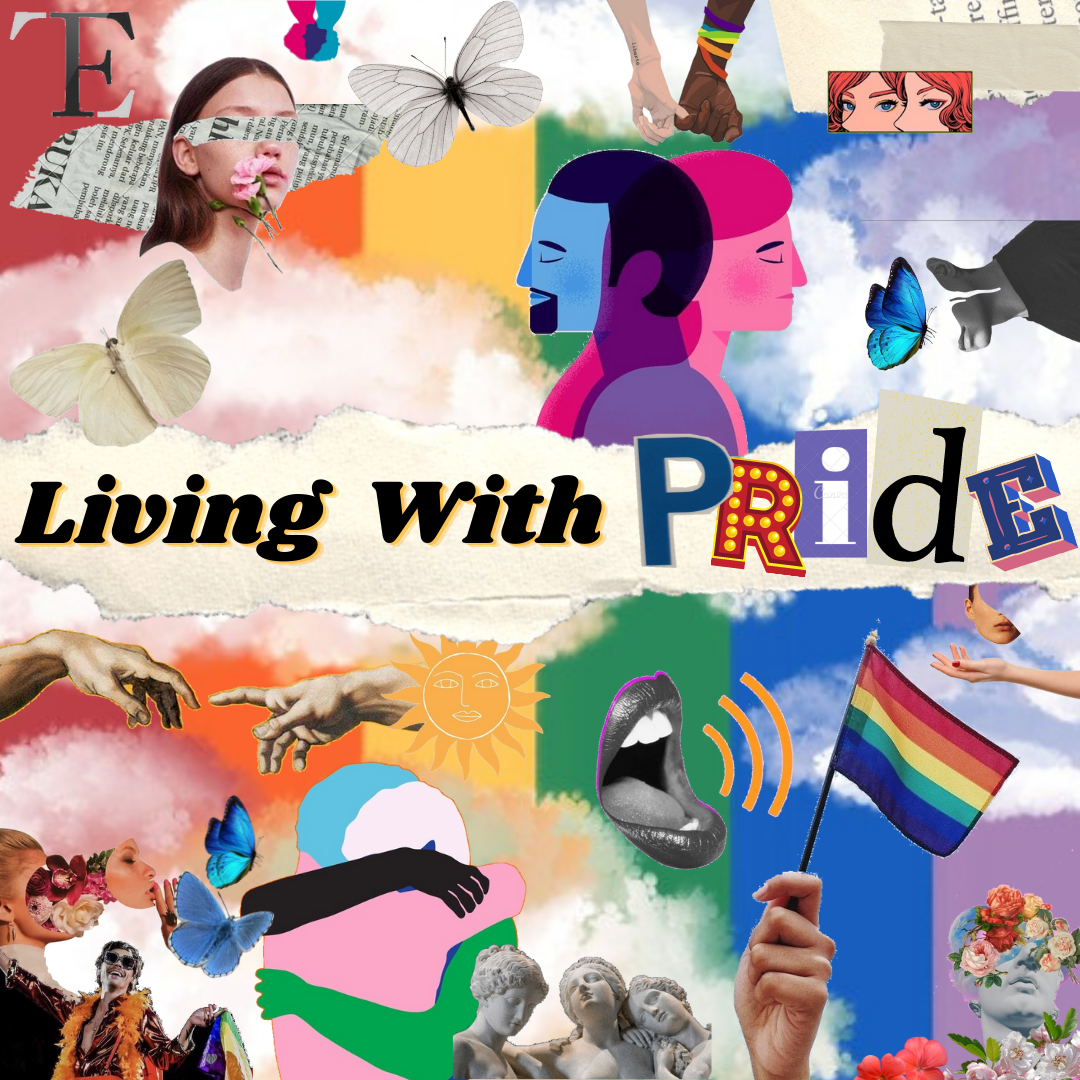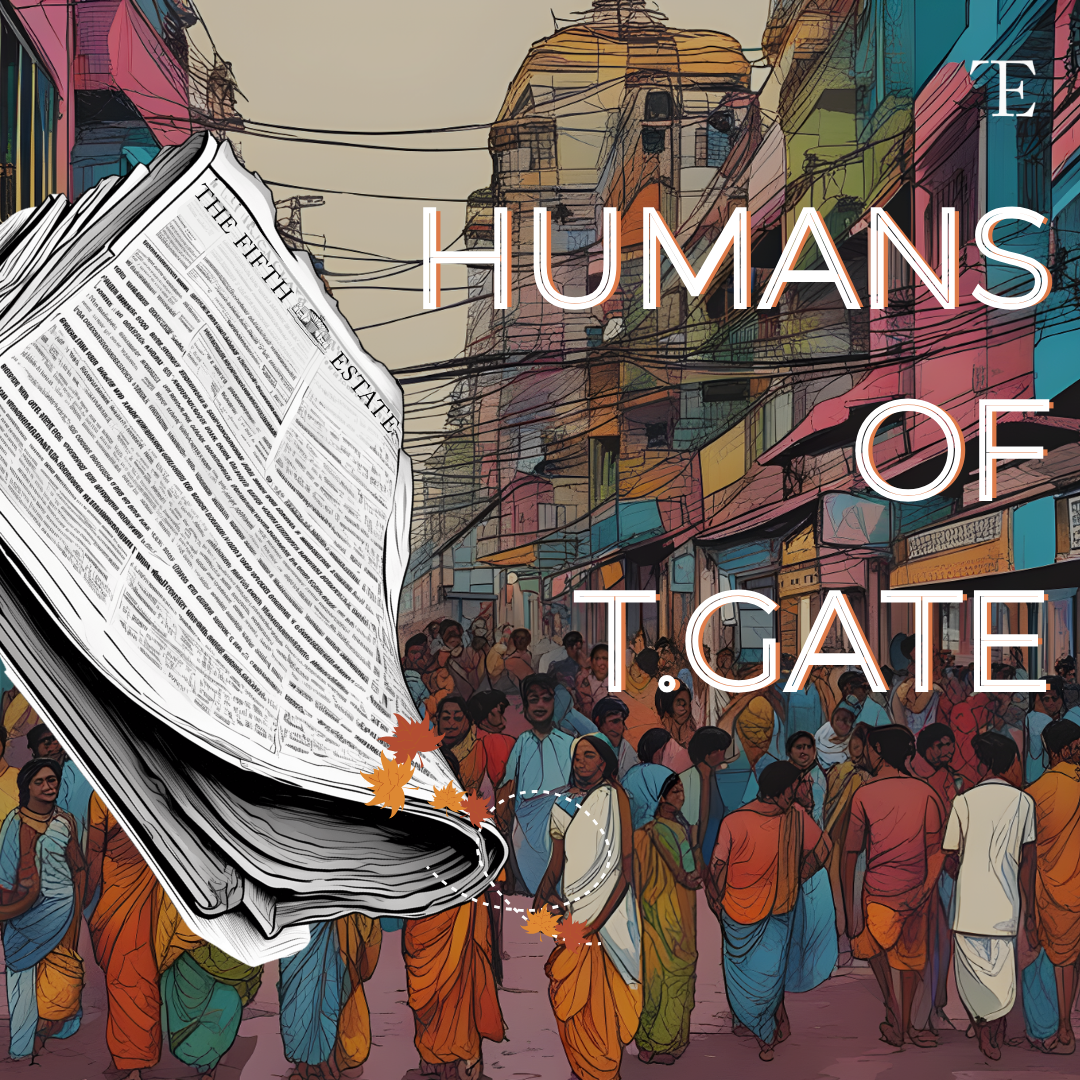Edited by: Sajusha Ashok | Design by: Aaromal Kesav
Pride Month: two words that are sure to elicit a mixture of emotions from queer people everywhere. For some, it is a time of celebration of themselves and their community, a time for love, a time for joy and acceptance. For others, it is a cruel reminder of the shortcomings of society and tough to watch from within the closet.
Queer Identity and India
We spoke to some students about their journey growing up queer in India. A lot of students held the view that Western media exposure helped them discover their queerness, with some citing progressive shows or sites like Tumblr as eye openers.
Many had issues navigating familial and societal pressure. Some described trying to argue their parents into acceptance, while even those with understanding parents felt they were fighting an uphill battle against judgemental elders. Students complained about the tendency to make casual homophobic jokes or use “gay” as an insult.
Still, in one of India’s most prestigious institutes, with students from all over the country, one would expect a more welcoming and open minded atmosphere, almost a haven for queer people to finally be free and express themselves. Right?
This Pride Month, we spoke to queer students on campus to hear about their experiences in IITM.
Queerness in Insti
Unfortunately, but unsurprisingly to most queer people, IITM is far from a paradise for the LGBTQIA+ community. It’s common to hear “gay” used as an insult, when something isn’t up to par. In many circles, even a hint of non-platonic affection towards someone of the same sex can be ostracising.
A student, M, said, “I’ve seen really gross homophobic meme pages pop up and flourish, while gay people are too scared to come out of the closet in case their ‘friends’ harass them.” Other students agreed: many noted how casual homophobia and the treatment of same-sex attraction as a cheap joke forced them to hide their true selves from the world.
S felt uncomfortable hiding their identity, but did it for their own safety and out of fear of being outed. “Do I tell someone? Who do I tell? What if they out me? What if they start perceiving me differently just because they know who I like now?…There’s way too many gay jokes from straight boys. If a guy acts a little feminine or rather un-masculine, they call him gay… It’s annoying, but when you can’t come out of the closet, how exactly do you voice your frustrations?”
Other frustrated students joined in, voicing how they were too scared even to talk about pride month to their friends lest they find out they hated the LGBTQIA+ community.
“Hold more queer friendly events. Educate people. Remove homophobic pages,” said one student when asked about what the institute could be doing to make queer students feel welcome. As it currently stands, there’s no module that sensitises students to the different gender and sexual orientations; one student feels introductory workshops and talks could help mitigate this by educating students, as could simple queer-friendly events like film screenings or book circles.
Meanwhile, instances of homophobia and transphobia should have a proper method of redressal. The student who spoke earlier also said she thought the administration needed to come down harder on anti-queer groups of students, such as the Instagram page that recently started promoting hate. Even in the student body, cis-het allies can speak up when they see bigotry being spread, and be vocal about queer rights.
It is true that students aside, faculty and administration seem never to acknowledge the LGBTQIA+ community. Material on sexual harassment or bullying fails to acknowledge the role homophobia may play in such incidents, and students feel there is no recourse for issues they may face.
However, Vannam, the institute’s LGBTQIA+ group, recently got official recognition as an Independent Student Body, or ISB. The former Core of Vannam spoke about her time in the group.
Vannam
In a conversation about pride on campus, the former Core said, “It’s not great—there’s no diplomatic way to say it. It was worse a few years ago before the judgement” (on Section 377 being struck down). She observed that things are changing with more access to the internet and its myriad resources, but outside of small pockets of accepting people, students – especially those who are visibly queer – have been harassed by Instagram trolls and denigrated.
She added, “As for how to make the situation better, I’d say awareness sessions help.” She said that some of the members of Vannam along with some women’s representatives and Saathi considered introducing an LGBTQIA+ sensitivity module for students, but that fell through. Life Skills had already had a session called “Living with the Other Sex”, but that was quite heteronormative.
This is where Vannam comes in. Vannam is a support and sensitisation group, which functions as a safe space for queer people. The WhatsApp group is open to both members of the community and allies; it doesn’t require disclosure of identity. During the online year, they held online meets to chat, play games, discuss queer media and foster community in general. They also recently held an offline film screening during the semester.
Vannam was officially recognised in the summer of 2021. Before that, there had been some discussion about it, but they were unable to find a Faculty Advisor. However, in 2021, Prof. Srilata from the Department of Humanities and Social Sciences (who has since left the institute) agreed to be the Advisor, and Vannam was able to take the matter to the DoST. “He was quite nice, though he had some apprehensions,” said the former Core, talking about the recognition process. “But, you know, we’re still very limited.” Unlike Sangam clubs, Vannam receives no funding; Independent Student Bodies do not fall under the purview of any Secretary, and thus have no budget. This contributes to low uptake, fewer people joining the team and difficulty with events.
Even still, the work has paid off; V, a student, described how happy she was that a space like Vannam even exists for students, while another student said, “IITM and Vannam have given me more confidence, I must say. Now I feel more comfortable and confident coming out than before. I was very sceptical about joining Vannam’s group when I first found their smail but thinking back, it’s been one of the best things ever. I found a lot of like-minded queer friends.”
Despite Vannam doing some great groundwork and the Internet helping shed light on the stigma around queerness, there’s a long way to go. Both the administration and the student body can and must do better at welcoming and supporting queer people on campus. We can look forward and do our best in hopes that the day will come when IITM, and the rest of the world, is truly equal for all of us.
“I struggle with living in a world that is not accepting of who I am—a lot of aspects of myself, not just my queerness—but I absolutely 100% accept myself for who I am.
I don’t have any shame.” — V.





